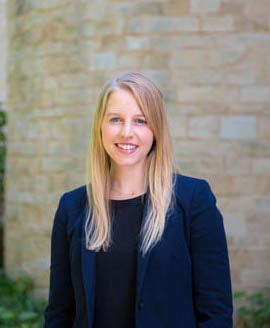Dynamic Responses to Carbon Pricing in the Electricity Sector

Paige’s work uses simulation and statistical models to answer important policy questions in energy and environmental economics. Her talk will explore the interaction between climate policy and local air pollution in California. This work highlights important equity considerations of climate policy and we are thrilled to have Paige share her results. — Vincent Thivierge, Bren School PhD Student
ABSTRACT
While carbon pricing is designed to reduce greenhouse gas (GHG) emissions, it also impacts the emissions of local air pollutants. I demonstrate that in a dynamic setting it is theoretically possible for a carbon price in the electricity sector to increase local air pollution in some areas. However, the pollution outcomes depend on the empirical cost structure of the regulated firms. I develop a dynamic model of electricity production and generating unit efficiency investment decisions to analyze how firm decisions in California’s electricity sector are affected by the state’s carbon price. I use the model to simulate market outcomes across policy scenarios with and without carbon prices, as well as a location-specific Pigouvian tax on air pollutants. I show that under current carbon prices, the regulation leads to minimal production reallocation and small changes in the spatial distribution of local air pollutants compared to a no carbon price scenario. Higher carbon prices lead to production reallocation and co-benefits from changes in the spatial distribution of air pollutants, though the co-benefits occur predominantly outside of state’s heavily polluted regions. I show that a location-specific Pigouvian tax, on the other hand, concentrates these benefits in the state’s most heavily polluted regions.
BIO
Paige is currently a postdoctoral researcher in the Environmental Market Solutions Lab (emLab) at the University of California, Santa Barbara. This summer she will be starting as an Assistant Professor in the Economics Department at the University of North Carolina at Chapel Hill, with an adjunct appointment in the Environment, Ecology, and Energy Program. She uses methods in applied microeconomics and industrial organization to answer research questions in energy, equity, and the environment. Her professional experiences in the electricity industry, federal government, and non governmental organizations inform and motivate her research agenda.